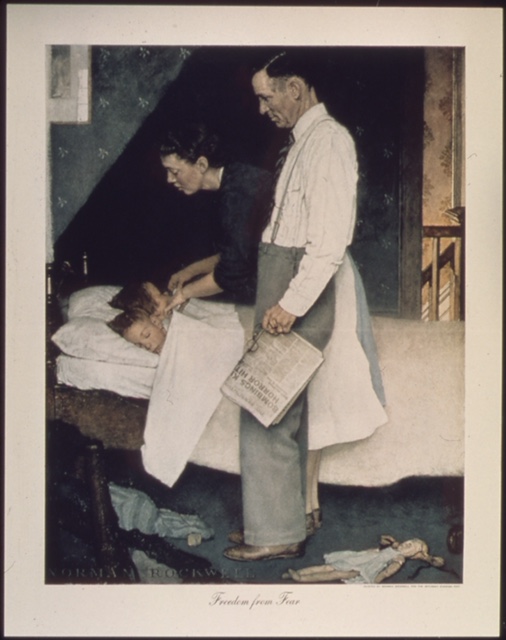“Democracy,” H.L. Mencken wrote, “is the theory that the common people know what they want, and deserve to get it good and hard.”
I’m pondering Mencken’s quip as we head into what will be an ugly political season in America, bringing what is perhaps a fitting close to one of the ugliest years any of us can remember. Of course our ancestors faced far worse; 430,000 WWI casualties and at least as many dead from Spanish flu over a two-year span led some to believe the 20th century’s first decade might well be its last. We’ve become conditioned, I suppose, to believe that plagues and wars and rumors of wars are a thing of the past, thanks to our superior science and diplomacy.
If nothing else, this year has illuminated what many of us have felt in our bones for some time, which is that the experts whose claim to our fealty has been the unprecedented peace and prosperity of modern times may not be as competent as we wanted to believe.

Like many of you, I worry about what the decisions of our fallible elites will mean for my children. As my teens were preparing for online schooling, I saw a popular educator un-self-consciously tweet his concerns about nosy parents listening in on his classes. “What does this do,” he fretted, “to our equity/inclusion work?” He went on to say that he’s always counted on the separation from parents to afford him room to work with kids in a “what happens here stays here” context. Thousands of people with the words teacher or educator in their Twitter bios expressed approval.
My oldest son, meanwhile, is a United States Marine. I watch uneasily as various hawks in think tanks pound the drum for military adventure in China, Russia, and elsewhere. I wonder how many of them have sons and daughters who will be expended for whatever new theory about vital American interests requires boots on distant soil.
And my youngest, meanwhile, still have so far to go. What will schools look like, for them? Will they completely forget what church was like, back when they could wander about unmasked, being picked up by one adoring adult or another, the liturgy infusing their little hearts? Will they be forced to take a vaccine? Will they grow up with war being more than a rumor, and local industry a distant memory?
I used to have confidence the people above us will step into the gap when the hard times come. That’s how our history books read. War begins, depression strikes, and a strong, noble—albeit imperfect—leader comes forward to guide the way. I’m not so sure anymore. You read the news. You see how the people who’ve set themselves up as our leaders and would-be leaders behave.
I’ve been reading Ron Chernow’s biography of Alexander Hamilton, and what strikes me is how from the very beginning, politics were ugly. Republicans accused George Washington of being a closet monarchist, or at best a doddering old man getting duped into allowing the Brits to retake America. Federalists accused Jefferson of being a bloodthirsty radical plotting to erect guillotines rise over the streets of Philadelphia. Monroe, entrusted with papers revealing Hamilton’s adultery, handed them over to a journalist after Hamilton threatened to expose Jefferson’s dalliances with his slaves.
My point is: Though we’ve taken peace and prosperity for granted, maybe we should marvel at the fact that our species has managed to get along for as many years as we have.
Which brings me to my real and final point, which is that I believe we fathers have a vital role that is being put to the test now more than ever. Our communities will hold together not because of some great man or woman in Washington, D.C., but because of the decency we cultivate in our sons and daughters. Our communities will come apart to the extent we let them become like the people we see shouting at us from our cable news programs.
The people who will save what we love, in other words, aren’t running for office this fall. They’re looking at us across the breakfast table. Which means we—you and I—have a part to play that’s just as important, in the futures of thousands we’ll never meet, as any Founding Father. So keep doing the work of intentionally fathering. It matters. You’ll never win a medal for it, or a chapter in a history book, and that’s okay. Let the people at the top have all the glory. The rest of us have work to do.


Very good read
My son is an Air Force reservist, and a university student midway through his computer science degree. Beyond the pandemic, I think deeply about the changing landscape of our economy, political division, and geopolitical challenges. We continue to support and guide our son, but it feels as if something has frayed in our American culture, and it concerns me. Thank you for your lucid writing and sound insights.
Timely as always, your words are potent reminders that while times may change, the work never does, and what’s at stake is always critical.
Perhaps one good thing that could come of this pandemic is the uptick in homeschooling. This allows for more time with parents and, as stressed here, with their father. Until people get serious about not out-sourcing their parental responsibilities to outside institutions (who don’t have their family’s interests at heart) then I’m afraid what we are seeing today is the new normal.